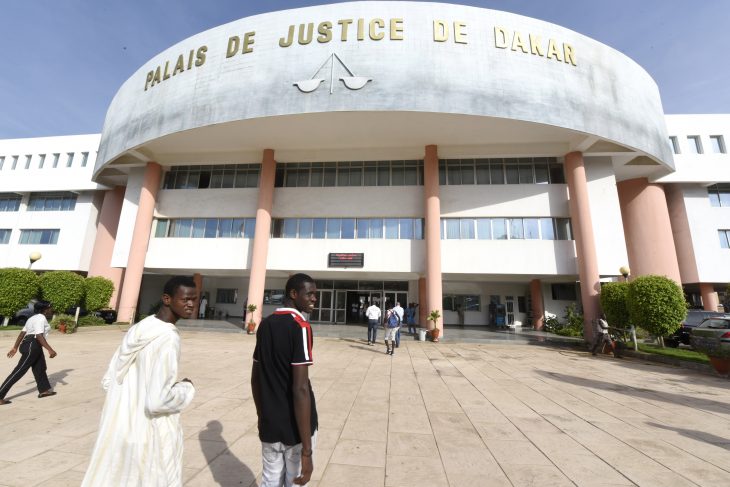In 2016 the threat of mass withdrawals from the ICC once again came into prominence. Since the turn of the year, whilst the threat remains a real concern to many observers, it has been somewhat tempered by Gambia’s and South Africa’s recent decisions not to withdraw from the ICC. However, the continued evolution of international criminal justice requires the examination of alternative international criminal justice options above and beyond the ICC, including the African Union’s very own court, the African Court of Justice and Human Rights.
Introduction
One of the most important international justice narratives of 2016 was the proposed withdrawal of African nations from the International Criminal Court (ICC), with Gambia, South Africa and Burundi in particular making steps towards officially withdrawing. Since the turn of the year, however, what appeared to many as a significant threat, not only to international justice in these particular countries, but to the ICC more generally, has somewhat dissipated. First, with the news that the incoming President of Gambia, Adama Barrow, will reverse Gambia’s withdrawal and second, following the South African High Court ‘s decision on the unconstitutionality of its withdrawal, with confirmation that South Africa has formally retracted its notice of withdrawal. As it stands therefore, of the three African nations leading a potential rebellion against the ICC, only Burundi appears to be pressing on with withdrawal; an unfortunate situation for the ICC and perhaps most importantly for Burundians, but not quite the seismic shift in international criminal justice that many predicted.
Despite withdrawals waning, the potential of African nations leaving the ICC threw up the interesting debate over alternatives to the ICC in Africa. These alternatives can be in place of the ICC for African nations seeking to withdraw, or in addition and complementarity to the ICC for African nations, who elect to remain members of the court. This piece seeks to explore some of the current options available to African nations, whichever camp they are currently in. It will look at two options in particular. First, the ad hoc or hybrid tribunal, for which the African Union (AU) has its own template in the case of the Hissène Habré trial before the hybrid Chambres Africaines Extraordinaires (CAE).The second is a permanent court, which exists, at least on paper, in the form of the African Court of Justice and Human Rights (ACJHR), a proposed AU mega-court with jurisdiction over international crimes, including those within the ICC’s current jurisdiction.
The First Option- Hybrid Courts
The first option can be best understood as a tribunal to consider a particular country, situation or event. Here as an example we have the AU backed example of the CAE. This hybrid court is located in Dakar, Senegal, and was created to try Hissène Habré for atrocities that took place in Chad during his tenure as the country’s president between June 1982 and December 1990. The CAE, now in its appeal stages, having convicted Habré of a number of crimes, has been considered to have generally adhered to internationally recognized fair trial standards, despite Habré’s refusal to cooperate. Whilst the hybrid model is therefore a possibility, the route to the creation of the CAE cannot be ignored. As recounted by Reed Brody, formerly of Human Rights Watch, the Habré victim coalition had to persue domestic prosecutions in Senegal and Belgium, as well as cases before international tribunals and committees including the UN Committee Against Torture, the International Court of Justice, the African Union’s Committee of Eminent Jurists and the ECOWAS Community Court of Justice over the course of over twenty years before finally seeing the CAE created. This arduous route runs counter to the accepted narrative that victims of atrocities should be provided with every opportunity to launch cases against those alleged to have been at the heart of the crimes. This is not to say that a hybrid court should be discounted, but issues surrounding the creation of such tribunals, particularly the need to be established each and every time a situation or event occurs, must lead to the consideration of a second more permanent alternative.
The Second Option- A Permanent Court
It may come as a surprise to some that a permanent option currently exists and sits on the African Union’s books in the form of the African Court of Justice and Human Rights (ACJHR). Importantly, the ACJHR currently remains limited to paper only, but its statute envisions a mega-court with three sections: a human rights section, a “general” section and an international crimes section. The path to the creation of this court however has not been straightforward. The first ACJHR, as envisioned by the Protocol on the Statute of the African Court of Justice and Human Rights, combined the currently operational African Court on Human and Peoples’ Rights with a yet to be operational ‘Court of Justice’. The Protocol creating this original court was adopted on 1 July 2008 and has so far attracted five ratifications (it needs 15). Importantly though, this version contains no mention of international crimes. For this, one must look to the Protocol on Amendments to the Protocol on the Statute of the African Court of Justice and Human Rights (Amended Protocol), an additional instrument adopted on 27 June 2014, which includes not only human rights and ‘general affairs’ sections as envisioned in the previous protocol but now a third ‘international criminal law’ section. According to the Amended Protocol, this international criminal law section will have jurisdiction to consider an ambitious roster of 14 crimes including genocide, crimes against humanity, war crimes and the crime of aggression, but also the crime of unconstitutional change in government, piracy, terrorism, mercenarism, corruption, money laundering, trafficking in persons, drugs, and hazardous wastes, and the illicit exploitation of natural resources. Controversially, Article 46A bis of the Amended Protocol states that no charges shall be commenced or continued against any serving head of an AU state or government, or anybody acting or entitled to act in such capacity, or other senior state officials based on their official functions, during their tenure in office. This article has been subject to much criticism and seen by many as a retrograde step in the fight against impunity.
Perhaps an even bigger issue though is the complete lack of engagement by AU member states with the ACJHR. At the time of writing, not one AU member state has signed the Amended Protocol. This situation may surprise many and seems to run counter to the narrative put forward by many nations who are advocating, formally and informally, for withdrawal from the ICC. For such nations the arguments tend to be for an African alternative, yet none have ratified the Amended Protocol. Why member states have failed to sign up is difficult to ascertain. Whilst it can be dangerous to try and provide one answer to encompass each member state’s seeming aversion to the ACJHR, perhaps one explanation is the sheer enormity of the project and the limited resources available. Is it easier to criticize the ICC from a distance than to get your own huge and unwieldy court up and running on a fraction of the ICC’s budget?
Conclusion
In conclusion, there is nothing to stop African nations being members of the ICC, pursuing hybrid domestic tribunals such as the CAE and ratifying the Amended Protocol creating the ACJHR. The African Union now has a template for the creation of a hybrid African court in the form of the CAE. Whilst the complex and lengthy route by which the CAE was created should not be replicated, the CAE venture has demonstrated to Africans and the wider world that this form of court can work. The permanent alternative is the ACJHR, a court with a huge jurisdictional reach. Whether the ICC and ACJHR can make comfortable stable mates remains to be seen, but since the temporal jurisdiction of the ACJHR will be for crimes committed only after the entry into force of the Protocol and Statute the ICC will retain sole jurisdiction at the international level to try crimes committed before the entry into force of the ACJHR. Membership of both courts would create a double layer of insulation at the international level, which can go hand in hand with domestic or hybrid institutions. This multi-layered approach has the capability to work in unison to see cases brought before at least one competent court. This approach would also negate the major concern of jurisdictional vacuums appearing where nations are not under the jurisdiction of any international institution, because they have withdrawn from the ICC, have not ratified the Additional Protocol and no hybrid institution is in place. The answer is for African nations to embrace all options, creating a rich tapestry of international criminal justice options from the international level, such as the ICC and ACJHR, through hybrid tribunals such as the CAE (and mooted for South Sudan and the Central African Republic) to strengthening domestic structures. A tapestry with so many threads will create a strong structure and ensure African citizens continue to enjoy the protection of the law wherever and whoever they may be.
The writer is Counsel at the American Bar Association Center for Human Rights, Washington D.C., United States
Founder of the ACtHPR Monitor, The Hague, The Netherlands





